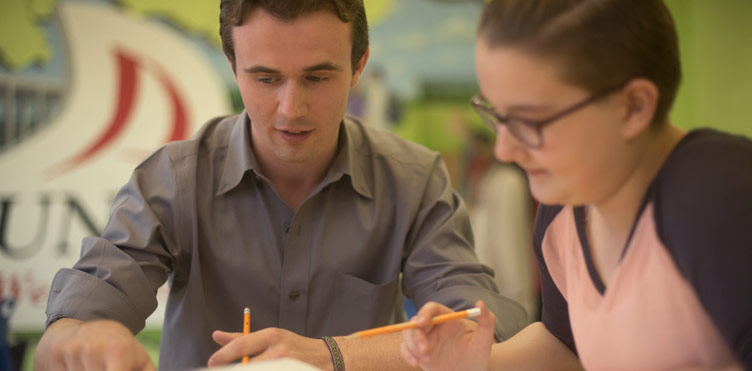Research

Mentoring has increased in popularity over the last 10 years as a means of creating positive change in “at risk” children’s lives, however program popularity does not mean a program is effective.
Engaging in mentoring is not sufficient to predict positive outcomes (DuBois et al. 2002) for the mentee or the mentor. Measurable positive change is only predicted for participants when a program implements empirically supported best practices (Durlak & DuPre, 2008).
Process evaluation
Programs that undergo formal evaluation tend to show significant positive change for both the mentee and mentor, through the implementation of empirical best practices, monitoring of outcomes, and program refinement (DuBois et al., 2002).
In order to maximize both the mentees' and UNB student mentors' opportunities for growth, the Promise Partnership appointed a Community Engagement Evaluator in 2011. The program has undergone a process evaluation to ensure best practices are followed for policy formation in all streams of programming – the Student Mentoring Club, High School Tutoring, Summer Reading and supplementary programs.
Areas of investigation include mentee areas of need, as well as monitoring mentee outcomes such as improvements in reading levels. The Promise Partnership was also a partner in a Pan-Canada study looking at university-community engagement, specifically investigating parents’ perceptions of the Promise Partnership and differences between UNB Saint John students who volunteer as mentors and those who do not.
